As Nigerians prepare to head to the polls to elect new leaders who will steer the affairs of the country, the use of election misinformation and disinformation has become a weaponized tactic employed by supporters of various political parties. This is usually in an attempt to sway public opinion and in turn influence the election outcome.
The weaponization of misinformation and disinformation in Nigerian elections has overshadowed the traditional forms of political manipulation such as hate speech and ethnic profiling. These tactics have been dominant in Nigerian elections in the past, particularly in the northern regions of the country, where ethnic clashes have occurred in the aftermath of elections. The 2011 elections were a prime example of this, where ethnic tensions boiled over into violence that resulted in significant loss of lives and property.
With the advancement of digital technology, political actors are exploiting the ability to manipulate audio-visuals and images, to further their political agendas and sway public opinion.
They use the manipulated content to cast their political rivals in a negative light, and make them appear untrustworthy or unethical in the eyes of the electorate. To give credibility to mis/disinformation, actors are also using altered videos, images and photos to push false narratives.
Avoiding politics of godfatherism in Gombe
EU, Oxfam spend N434m in Adamawa, Kebbi on food security
Candidate Peter Obi of the Labour Party (LP) faces a campaign hurdle as some of his supporters have resorted to using doctored videos featuring Hollywood stars, to falsely claim endorsement of his candidacy.
A manipulated video was circulated online showing Hollywood celebrities holding a white placard reading ‘Yes, it makes sense to vote for Peter Obi in 2023’. The video features a Nigerian map and a ballot paper with a thumbprint of Peter Obi’s affiliation, the Labour Party (LP). This video is part of a deceptive effort by some Obi supporters, to give the false impression of endorsement from the Hollywood stars.
The doctored video, which was widely shared on Twitter and WhatsApp, had 41 Hollywood stars including; Idris Elba, Ice Cube, John Cena, Tom Cruise, Doud Lima, Jennifer Aniston, Will Smith, and Bruce Willis among others.
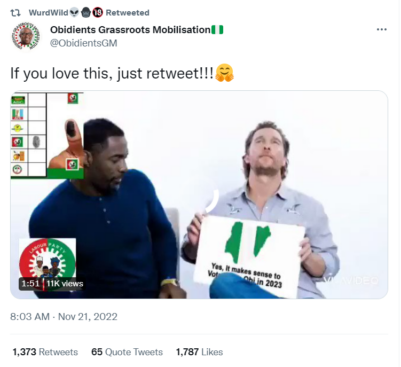
A reserve image analysis of keyframes from the doctored video revealed that it was produced by merging parts from the ‘Weird Autocomplete Interviews’ series and trailer for the comedic film ‘Red Nose Day Actually’. This showed that the video’s claims of Hollywood endorsement for Obi were false and not genuine.
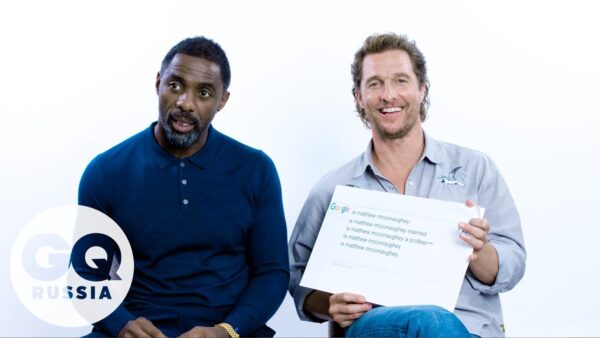
Additionally, further analysis revealed that the video gained traction through a Twitter account @ObidientsGM, where it received ~11,000 views, 1,376 retweets, 65 quote tweets, and 1,785 likes. The account, which is described as a means of grassroots mobilisation for Peter Obi, has been promoting his candidacy since he declared his intention to run for the country’s highest political office.
An in-depth analysis revealed that the video was initially posted on November 20, 2022, by @Ogenennewi in the comment section of a tweet made by Obi.
The video was later shared by another tweep @Akirika9ja. However, it received limited traction of 60 views, 13 retweets, and 17 likes.
The doctored video further got a wider audience when a prominent figure in the entertainment industry in Nigeria and a supporter of Obi, Charlie Boy, posted it attracting 2,130 retweets, 347 quote tweets, and 4,469 likes. The tweet, which has since been deleted but documented in archives, demonstrates the widespread use of election misinformation and disinformation as a campaign tactic in the upcoming Nigerian elections.
The video is not the first manipulated video posted by @genennewi. A further review of his account activities revealed that just a day after posting the Hollywood doctored video, he posted another doctored video of a celebrity dog painting a picture of Obi.
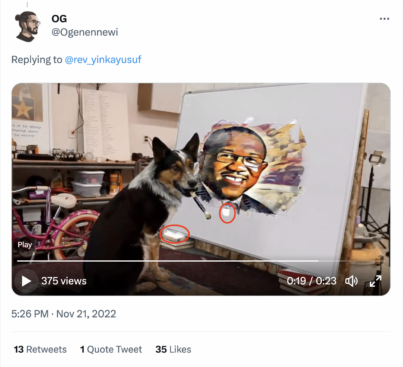
A reverse image search showed that the original video was of Jumpy the dog, a YouTube celebrity dog whose videos have received millions of views, painting a landscape. At the 00:20 second of the 23-second-long video, a red shade is visible from afar. Additionally, a white spot on the cover of the book underneath the canvas drawing board was observed, indicating amateur editing efforts to conceal the manipulation.
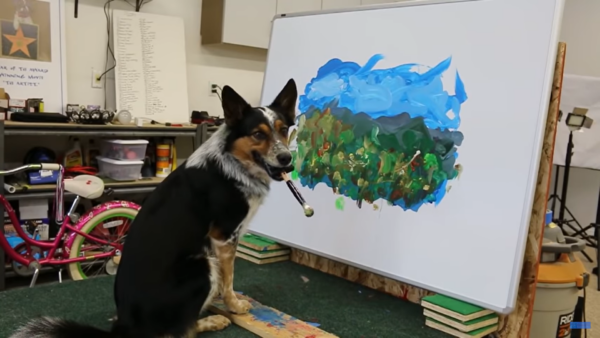
With the elections drawing near, politicians from different political groups have begun using misinformation and disinformation as political weapons to undermine their political opponents. These tactics have become so prevalent that they are now making it to the front pages of the country’s mainstream media, causing the government to express worries about the negative impacts the tactics could have on the election results.
The Minister of Information and Culture, Lai Mohammed, has stated that election misinformation and disinformation pose a significant threat to the upcoming elections, in addition to issues such as violence, insecurity, vote buying, and attacks on facilities belonging to the Independent National Electoral Commission (INEC).
Obi’s supporters
Although misinformation has been equally employed by all major political parties contesting the election, the supporters of Peter Obi, who are mostly young and tech-savvy, have frequently perpetuated the idea that his candidacy has received the backing of foreign individuals. Despite this, such endorsements are unlikely to significantly impact the outcome of the election.
A quote attributed to Hollywood actor Will Smith, which was trending in December last year, urged Nigerians to make history by voting for Obi as the Nigerian president. The quote read: “Peter is the best candidate to even rule America, fight for him. I have heard him speak to his people one-on-one, his energy is unmatched and his diligence is second to none. Never in the history of Africa has someone like him emerged. If he were an American, his path to the presidential ticket would be certain. He holds the key not only to a new Nigeria but also Africa.”
However, a fact-check conducted by Africa Check concluded that the quote was fake and could not be traced to the actor through his social media handle.
In July, another false claim circulated on social media that A-list actor Tom Hanks endorsed Obi after watching a video of his speech. This claim was also investigated by Daily Trust, confirming that it was false.
Additionally, a post by Charly Boy claimed that former Nigerian President Olusegun Obasanjo travelled to the United States to promote Obi’s candidacy to 49 world leaders.
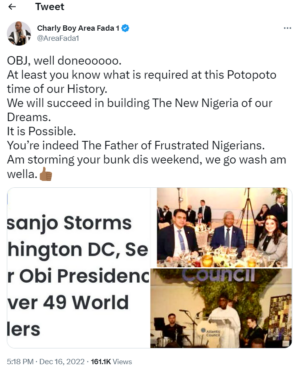
The post featured a picture of the former president on stage, bearing the Atlantic Council logo, and another picture of white attendees. Although the images were blurry and reverse image searches yielded no results, two news reports emerged, which seem to be syndicated. These reports indicated that Obasanjo attended the Atlantic Council during the US-Africa Business Forum held in Washington in December, 2022 to sell Obi’s candidacy.
This manipulation of information has the potential to undermine the integrity of the election process and create confusion among voters. In an environment where misinformation and disinformation are rampant, it becomes increasingly difficult for voters to make informed decisions and participate in a fair and democratic election process. The use of such tactics highlights the need for greater transparency and accountability in political campaigns, as well as education and awareness-raising initiatives to help voters identify and reject disinformation.
This article was produced with mentorship from the African Academy for Open Source Investigations (AAOSI), to tackle disinformation that undermines democracies, as part of an initiative by the International Centre for Journalists (ICFJ) and Code for Africa (CfA) in partnership with the Daily Trust Foundation.
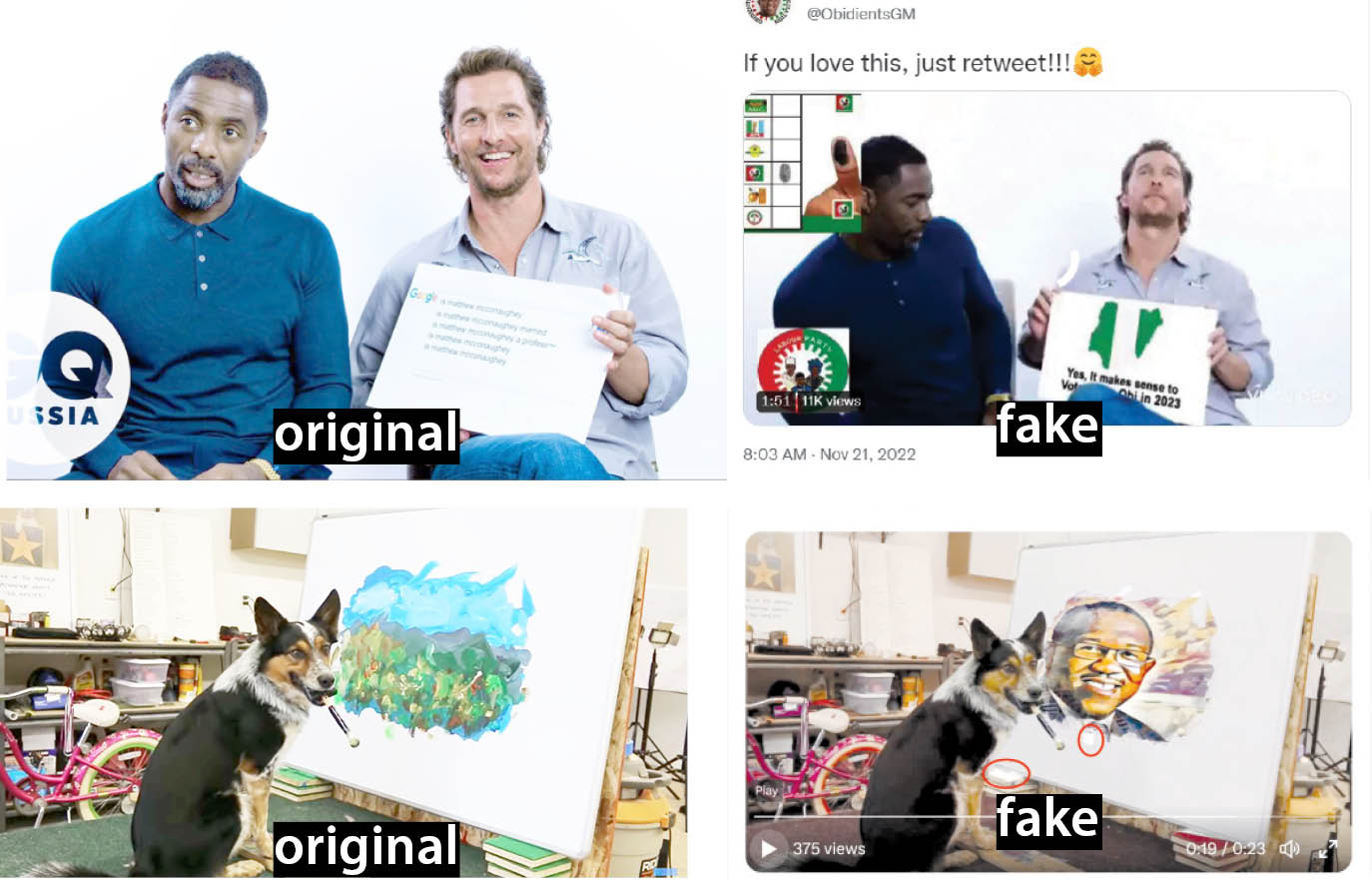
 Join Daily Trust WhatsApp Community For Quick Access To News and Happenings Around You.
Join Daily Trust WhatsApp Community For Quick Access To News and Happenings Around You.